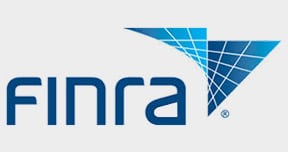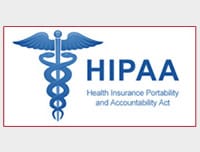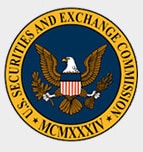Welcome To Distance Learning Connection
Online And In-person Training Courses To Deal With Real-world Issues
Distance Learning Connection creates customized learning experiences for organizations in highly regulated industries. Online and in-person training courses teach employees to recognize and deal with real-world issues.
Our education courses map to specific regulatory requirements to help employees achieve industry compliance. We focus on the financial, healthcare, insurance and legal industries.
Our boutique learning company specializes in managed care and attention. Let us identify the requirements and necessary protections for your business and develop courses based on your needs.
Click Here to Find out how affordable compliance training can be.
Online Training In Cybersecurity For The Financial Industry
Distance Learning Connection offers customized learning experiences for the highly regulated financial industry. Its distance learning online cybersecurity training courses and in-person cybersecurity training for the financial industry will help Registered Investment Advisors (RIAs), and Broker Dealers recognize their role and responsibility in preventing a cyber incident.
The Cybersecurity for Financial Firms Course will identify the laws and regulations that drive an investment advisor’s obligation to: maintain the privacy of client data and protected information, and to protect documents and information during storage and transmission, in and out of the firm. In addition, it will explain how to properly destroy documents and digital files that contain protected information, when they are no longer being used, and how to conform with industry best practices for meeting cybersecurity obligations.
Broker Dealers and RIAs will have all of their questions answered, regarding cybersecurity issues in their industry. Our learning opportunities provide the absolute best and most comprehensive online training in cybersecurity.
They will learn:
- What drives an investment advisor’s obligation to maintain the privacy of client data and protected information?
- What tools and techniques are cybercriminals using to gain access to investment advisors’ clients’ protected information?
- What industry best practices should be used to properly secure protected financial information?
Upon successful completion of the online training in cybersecurity course, the investment advisor will be able to explain the scope of cybersecurity regulations, recall the obligations that the regulations impart, categorize the profile of cybercriminals, and distinguish the types of cybercrimes that are committed. Most importantly however, through the online cybersecurity training courses, and in-person course, financial advisors will learn their responsibilities and have the tools to protect financial information from future cybercrime. Call Distance Learning Connection today for a consultation.
Client Testimonials
Distance Learning Connection understands how to manage and navigate client’s business needs effectively and efficiently.
"The company’s knowledge, ease in communication and ability to adapt and pivot made all the difference in our user base...
"I have been working with Distance Learning Connection regularly during the last 4 years related to cyber security training..."
Healthcare Industry - Online Training Programs
HIPAA (Health Insurance Portability and Accountability Act)
Training: Organizations can lower their risk of regulatory action through HIPAA compliance training programs. Distance Learning Connection offers online and in-person training programs that provide certification credentials to indicate an understanding of the guidelines and regulations specified by the act. Click here to review the HIPPA Course Topics.
What is HIPAA: The Standards for Privacy of Individually Identifiable Health Information, commonly known as the HIPAA Privacy Rule, establishes the first national standards in the United States to protect patients’ personal or protected health information (PHI). HHS issued the rule to limit the use and disclosure of sensitive PHI. It seeks to protect the privacy of patients by requiring doctors to provide patients with an account of each entity to which the doctor discloses PHI for billing and administrative purposes, while still allowing relevant health information to flow through the proper channels. The privacy rule also guarantees patients the right to receive their own PHI, upon request, from healthcare providers covered by HIPAA.
Who does it affect: The HIPAA Privacy Rule applies to organizations that are considered HIPAA-covered entities, including health plans, healthcare clearinghouses, and healthcare providers. In addition, the HIPAA Privacy Rule requires covered entities that work with a HIPAA business associate to produce a contract that imposes specific safeguards on the PHI that the business associate uses or discloses.
What information is protected? The HIPAA Privacy Rule protects all individually identifiable health information that is held or transmitted by a covered entity or a business associate. This information can be held in any form, including digital, paper, or oral. This individually identifiable health information is also known as PHI under the Privacy Rule.
What is considered protected health information under HIPAA? PHI includes: a patient’s name, address, birth date and Social Security number; an individual’s physical or mental health condition; any care provided to an individual; or information concerning the payment for the care provided to the individual that identifies the patient, or information for which there is a reasonable basis to believe could be used to identify the patient.
Administrative Requirements: The Privacy Rule lays out certain administrative requirements that covered entities must have in place.
These requirements include the following:
- A privacy official must be appointed who is responsible for developing and implementing policies and procedures at a covered entity.
- Employees, including volunteers and trainees, must be trained on policies and procedures.
- Appropriate administrative, technical, and physical safeguards must be maintained to protect the privacy of PHI in a covered entity.
- A process for individuals to make complaints concerning policies and procedures must be in place at a covered entity.
- If PHI is disclosed in violation of its policies and procedures, a covered entity must mitigate any harmful effects to the furthest extent actionable.
Why Take The HIPAA Compliance Training Program?
The HIPAA Compliance Training program offered by Distance Learning Connection is designed for organizations to ensure that their employees stay compliant. It offers great value by giving an in-depth understanding of the HIPAA security rule in New York. Those who successfully complete the course shall thereafter understand New York public health law better, and fully grasp the laws concerning an NYC HIPAA violation. And successful completion of the HIPAA Compliance Training Program will make you a New York HIPAA compliance consultant. To take our individual training course, call Distance Learning Connection today for a consultation.
Industries We Focus On
Cybersecurity Training For Legal Firms
Distance Learning Connection offers customized learning experiences for the highly regulated legal industry. Its distance learning online cybersecurity training courses and in-person cybersecurity training for the legal industry will help attorneys recognize their role and responsibility in preventing a cyber incident.
The Cybersecurity Training for Legal Firms Course will identify the laws and regulations that drive attorneys’ obligations to maintain the privacy of client data and protect the information, as well as protect documents and information during storage and transmission, in and out of the firm. In addition, the online training in cybersecurity will explain how to properly destroy documents and digital files that contain protected information, when they are no longer being used, and conform with industry best practices for meeting cybersecurity obligations.
Attorneys will have all of their questions answered, regarding the many cybersecurity issues in their industry. They will learn what drives an attorney’s obligation to maintain the privacy of client data and protected information, and they’ll discover which tools and techniques cybercriminals use to gain access to their clients’ protected information. Additionally, they’ll learn what industry best practices should be used to properly secure protected client information.
Upon successful completion of the online cybersecurity training course, the attorney will be able to explain the scope of cybersecurity regulations, recall the obligations that the regulations impart, categorize the profile of cybercriminals and distinguish the types of cybercrimes that are committed. Most importantly, through the in-person and online cybersecurity training course, attorneys will learn their responsibilities and have the tools to protect client information from future cybercrime.
Common Types Of Cyber Attacks
The most common types of cyber attacks include the following:
- Malware
- Phishing
- Man-in-the-middle-attack (MitM)
- Denial of Service Attack
- SQL Injection
- Zero-Day Exploit
Let’s consider these cyber attacks in detail:
- Malware
Malware is a term used to describe malicious software, which includes spyware, ransomware, worms, and viruses. It breaches the network when a user clicks a link or email attachment, and then they install risky software. Once the malware software is installed, it can do any the following:
- Install additional harmful software
- Block access to significant components of the network
- Disrupt certain components and make the system inoperable
- Phishing
Phishing is the practice of sending fraudulent communications through email, which appear to come from a reputable source. The goal is to steal sensitive data such as credit card information, or login information to install malware on the victim’s machine. Phishing is a threat that is on the rise.
- Man-in-the-middle Attack
This attack is also known as an eavesdropping attack, that happens when the attacker inserts himself or herself into a two-party transaction.
- Denial of Service Attack
This malware attacks a server or network with traffic to exhaust resources or bandwidth. Resultantly, the system is unable to fulfill the legitimate requests. Most of the time attackers use multiple compromised devices to launch this kind of attack.
- SQL Injection
A Structured Query Language or SQL injection is a sort of attack in which an attacker inserts malicious code into a server that uses SQL, and compels the server to reveal information it normally would not.
- Zero-Day Exploit
Zero-Day Exploit hits the network when its vulnerability is announced, and before a patch or solution is implemented. Usually, attackers target the disclosed network vulnerability during this window of time.
Hence, in such complex technological swapping, it is important for organizations or technical employees to obtain New York cybersecurity program certifications, so that they are aware of the type of warfare they are engaged in. In addition, it is important for the organization and employees to be fully cognizant of the latest technological updates and compliances.
Request A Consultation
Subscribe To Our Monthly Newsletter
Please provide your email address and name. We will send you your free copy of the Newsletter.
Office Location
Empire State Building
350 Fifth Avenue, 68th Floor
New York, NY 10118












